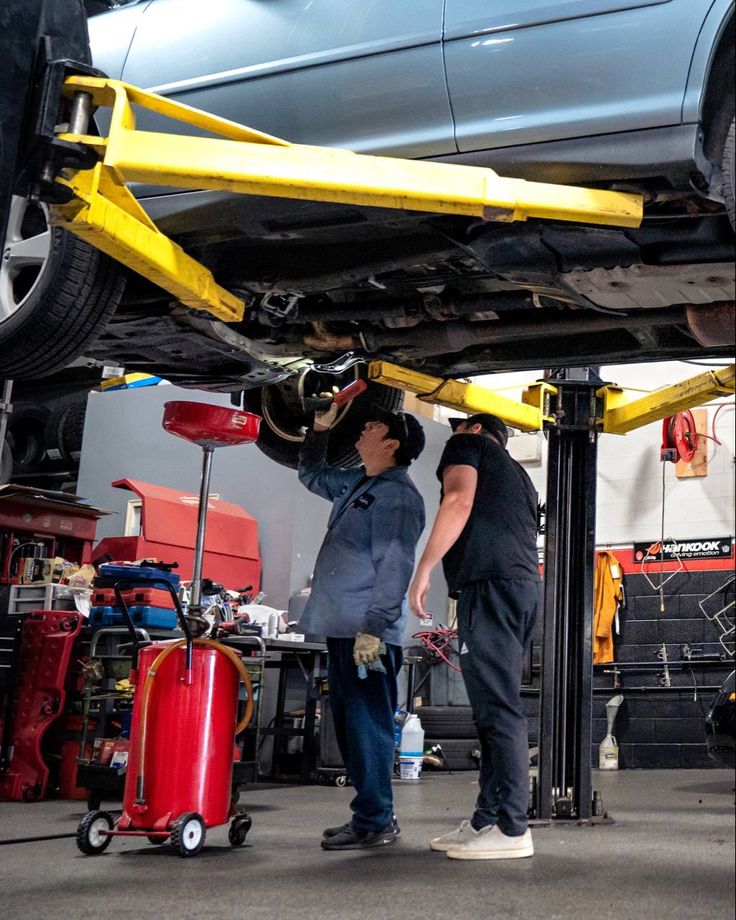Repair instructions
Signs That You Need a Tune-up
A tune-up is crucial for keeping your car running smoothly and preventing costly repairs down the line. But how do you know when it’s time to get one? As an expert mechanic, I’ll guide you through the key signs that your vehicle might need a tune-up.
Key Signs You Need a Tune-Up
If you’re noticing any of the following symptoms, it’s time to bring your car in for a tune-up:
1. Illuminated Warning Lights
When your dashboard warning lights come on, it’s a clear indication that something’s not right. Whether it’s the check engine light or another alert, it’s your car’s way of telling you that a tune-up is needed to address the underlying issue.

2. Poor Gas Mileage
If you’ve been filling up your gas tank more often than usual, you might be experiencing poor fuel efficiency. This could be due to a dirty oxygen sensor, clogged air filter, or fuel injector buildup. A tune-up addresses these issues by ensuring your fuel injection system is working properly, which can help restore your car’s fuel economy.
3. Delayed Acceleration
If you notice a lag when you press the accelerator, it’s a sign that your car isn’t getting the right mix of fuel and air. This is often caused by clogged fuel injectors or a faulty fuel pump, and it’s something that can be fixed with a tune-up to restore your engine’s power and responsiveness.
4. Unusual Vibrations or Shaking
Vibrations or shaking when your car starts or while driving are typically caused by worn-out spark plugs or clogged filters. These issues can impact engine performance, and a tune-up can correct them, ensuring smoother operation.
What’s Involved in a Car Tune-Up?
A car tune-up is a preventive maintenance procedure that helps keep your vehicle running at its best. During a tune-up, your mechanic will inspect and replace worn-out parts, including:
- Spark plugs and spark plug wires: These are checked for wear, corrosion, and proper gap settings.
- Fuel filter and air filter: Both are cleaned or replaced to ensure proper airflow and fuel flow.
- Oxygen sensor: This part is vital for efficient fuel consumption and emissions control.
- Oil change: Fresh oil helps your engine run smoothly, and your mechanic will also inspect the oil filter.
On older vehicles, the tune-up may also include checking the distributor cap and rotor, adjusting the carburetor, and making sure the ignition points and condenser are in good condition.
How Often Should You Get a Tune-Up?
The timing of a tune-up depends on your vehicle’s age, make, and model. For older vehicles, a tune-up is generally recommended every 10,000 to 20,000 miles. Newer vehicles, however, can often go up to 100,000 miles before needing a tune-up, thanks to advances in engine technology.
Can You DIY a Tune-Up?
If you’re handy with tools and want to save some money, you can perform some basic tune-up tasks yourself. Changing the oil, replacing filters, and inspecting spark plugs can be done with a little knowledge and the right tools. However, for more complicated tasks like checking the fuel injectors or diagnosing warning lights, it’s always best to consult with a professional mechanic.
A DIY tune-up is a great way to take care of your car and ensure it runs smoothly, but if you’re not comfortable with the work, don’t hesitate to bring your car to a trusted professional for a thorough inspection.
By recognizing the signs early and staying on top of regular tune-ups, you’ll extend the life of your vehicle and avoid costly repairs down the road. Keep your car in top shape, and it will keep you on the road for years to come!
